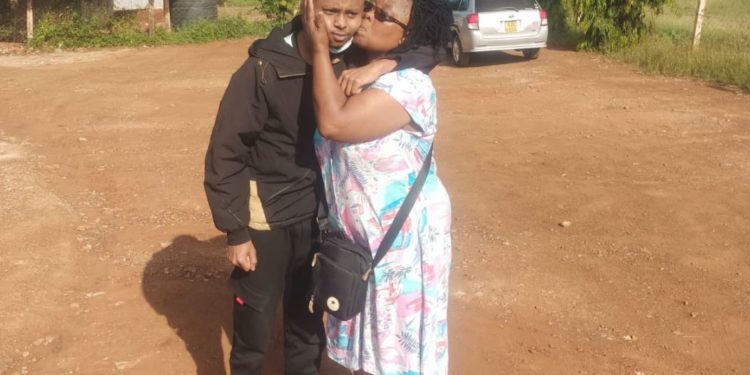Two missing Kenyans, Billy Mwangi and Peter Muteti, have been found alive, just hours before scheduled anti-abduction demonstrations. Their reappearance on Monday comes amid growing public concern over a wave of forced disappearances in the country.
Mwangi, who disappeared 15 days earlier, was left in Nyeri, roughly 60 kilometers from his home in Embu. He reportedly walked the remaining distance to reach his family. Muteti, abducted near a Nairobi apartment on December 21, was released in the capital. Both cases are believed to be linked to their outspoken criticism of the government, particularly through social media posts.
Photographs of Mwangi reuniting with his family in Embu have circulated widely online, drawing mixed reactions. Human rights activists argue that their release was timed to quell momentum for planned nationwide demonstrations. “We view this as an attempt to pacify public outrage,” said one protest organizer, emphasizing the need for greater accountability.
Despite the positive outcomes for Mwangi and Muteti, at least seven individuals remain unaccounted for. Kenya has seen a sharp rise in reported abductions over the past six months. The Kenya National Commission on Human Rights noted 82 cases since June 2024, including 13 in the last three months.
Director of Public Prosecutions (DPP) Mulele Ingonga has demanded swift action, instructing police and the Independent Policing Oversight Authority (IPOA) to deliver investigation reports by early January. “The state has a duty to safeguard citizens’ rights to life and security,” the DPP stated, referencing Articles 26 and 29 of Kenya’s Constitution.
Among the notable unresolved cases are those of cartoonist Gideon “Kibet Bull” Kibet and activist Steve Mbisi. Protesters argue that enforced disappearances represent an alarming trend and have urged authorities to prioritize investigations.










